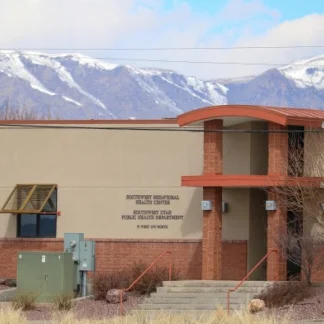Southwest Behavioral Health Center
Beaver, Utah, 75 West 1175 North, P.O. Box 1485, 84713
Available Programs
- Adolescence program
- Adult program
- HIV/AIDS program
- Program for men
- Program for women
- Young adult program
Insurance and Financial
- Medicaid
- Private insurance
- Self-pay options
- Financial aid
- Sliding scale payment assistance
- Medicare
- Military insurance
About this Facility
Southwest Behavioral Health Center is dedicated to provide mental health and substance abuse treatment to individuals from all ages. Services include medication management, individual, group and family counseling. Southwest Behavioral Health Center is located at Beaver, Utah.
Southwest Behavioral Health Center provides mental health and substance abuse services for children, youth and adults. Their vision is to help individuals and families to live free from addiction and mental illness. Programs include outpatient, intensive outpatient and day treatment.
Substance abuse treatment include clinical evaluations, court approved assessments, social detoxification, adult DUI offender education classes, Day Treatment/PHP for individuals who can attend treatment during the day, HIV education and screening, continuing care, dual diagnosis group, Intensive Outpatient Program (IOP) and on-site schooling provided by Washington County School District.
Services for those struggling with mental health include crisis intervention, individual, group or family therapy, parent education, skills development, psychiatric evaluation, medication management, specialized women’s and children’s services and case management.
In case the individual is in need of inpatient or residential treatment, they work in partnership with some centers that could help.
Contact us for more information: (435) 438-5537

Contact Southwest Behavioral Health Center
Connect with Southwest Behavioral Health Center by calling their admissions team directly.
(435) 438-5537 Website Get Directions